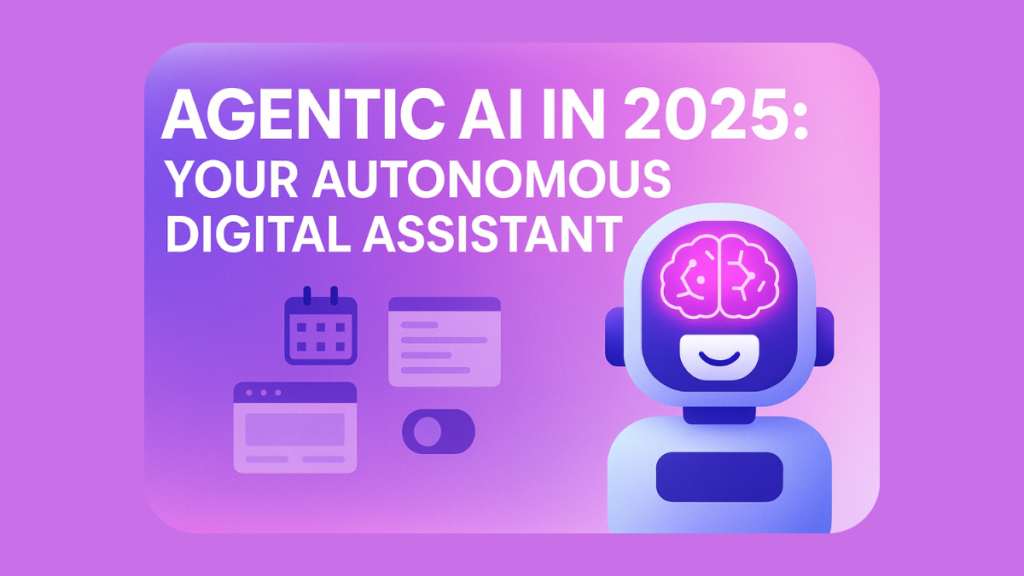1. What Is Agentic AI?
Firstly, agentic AI refers to systems that act on their own to get things done. Unlike regular AI, which only answers when asked, agentic AI plans, reasons, and then takes action with little human guidance. In fact, it’s been named one of the top emerging technologies for 2025.
2. How Does It Work?
Next, agentic AI works in a cycle:
- First, it observes, gathering information from its surroundings.
- Then, it thinks, figuring out a good plan using powerful models.
- After that, it acts, running tasks through tools or software.
- Lastly, it learns, by checking what worked and adjusting next time.
3. Where Is It Used Today?
Moreover, agentic AI is already in action across many sectors:
- In industry, companies like Siemens use it to watch machines and stop breakdowns early—cutting delays by about 25%.
- In finance, firms like JPMorgan use agentic systems to make fast trading decisions.
- In business, it helps with tasks like scheduling, customer service, and checking data trends.
- In customer support, it’s expected that by 2029, agentic AI could handle about 80% of common issues on its own, lowering costs by nearly 30%.
- Additionally, brands in luxury retail—like LVMH—are exploring agentic AI to improve in-store service, plan behind the scenes, and offer personal styling help.
4. Why It Matters Now
Importantly, adoption is growing fast. In 2025, around 25% of companies using generative AI began testing agentic AI pilots or proofs of concept—and that number is expected to double by 2027.
However, most businesses (about 86%) still need to upgrade their systems to fully use these advanced agents.
5. What Should Matter to Business Leaders?
According to industry experts, this shift isn’t just about smarter software—it’s a whole new way of working:
- Experts say businesses must build trust and rethink how work gets done. Agentic AI will free humans to focus on creative and strategic thinking, rather than routine tasks.
- In the customer experience world, agentic AI can turn feedback into real-time, personalized actions—making every customer feel handled swiftly and well.
- Yet, as companies rely on these smart agents, ethical issues and accountability must be clear. This includes having tools to trace decisions and steps taken by AI agents.
6. What Lies Ahead
Looking forward, agentic AI is paving the way for new tools and platforms. For example:
OpenAI and others are adopting a standard called Model Context Protocol (MCP). This helps agentic systems connect tools and data in a shared, smooth way.
In scientific fields, agents are helping with literature review, running experiments, and finding patterns—all on their own.
Meanwhile, researchers are studying how to make these AI agents safe, trustworthy, and fair.
Final Thoughts
In short, agentic AI in 2025 is more than just new software—it’s a new class of helpers that think, plan, and work on their own. As adoption grows, it will reshape how we work, serve customers, and drive innovation. Yet, it’s important to move forward with care—adding trust, keeping humans in the loop, and staying clear on who’s accountable when things go wrong.
Also Read : From Syntax to Prompts: What to Learn in Coding in 2025
